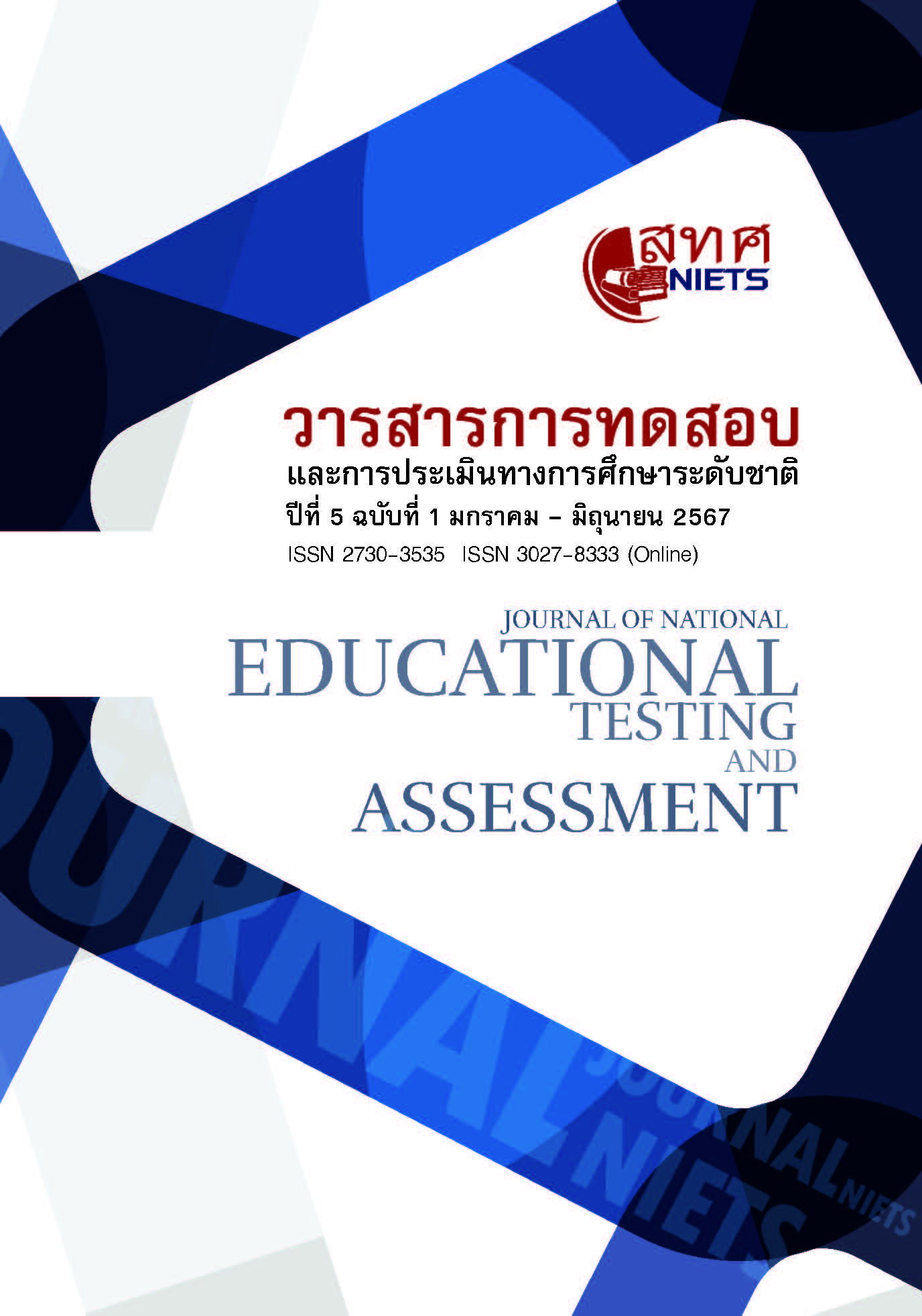The Pedagogical Impact of ChatGPT on High-school Student’s Creative Writing Skills: An Exploration of Generative AI Assisted Writing Tools
Main Article Content
บทคัดย่อ
This quasi-experimental research delved into the transformative potential of Generative AI-assisted writing tools, exemplified by ChatGPT, in enhancing the creative writing skills of eleventh-grade students within the Thai educational context. The study encompassed two primary objectives: 1) to assess the impact of Generative AI tools on students' creative writing skills before and after exposure during writing lessons; and 2) to compare the creative writing skills of students using Generative AI tools with those engaged in conventional teaching approaches. The research adopted a multi-stage sampling method, selecting 84 eleventh-grade students from a Thai secondary school, who were then divided into experimental (Generative AI-assisted) and controlled (conventional teaching) groups. The intervention involved the implementation of Generative AI Integrated Lesson Plans, integrating ChatGPT into the Communicative Language Teaching (CLT) approach. A parallel traditional teaching approach served as the controlled group. Creative writing skills were assessed through a 5-point scoring rubric before and after the intervention, covering aspects such as creativity, development, voice, literary devices, and literary conventions. The study employed statistical analyses, including paired sample t-tests and independent-samples t-tests, to scrutinize the research hypotheses. Preliminary findings indicated a statistically significant enhancement in the creative writing skills of students exposed to Generative AI tools, supporting the efficacy of this technological intervention.
Article Details

อนุญาตภายใต้เงื่อนไข Creative Commons Attribution-NonCommercial-NoDerivatives 4.0 International License.
under process
เอกสารอ้างอิง
Anderson, J., & White, E. (2020). Rethinking the Writing Classroom: A Comparative Analysis of Generative AI and Traditional Teaching Approaches. Journal of Educational Technology, 45(2), 123-145.
Anderson, M., et al. (2021). The Role of AI in Shaping Modern Educational Landscapes. Journal of Educational Technology, 34(2), 215-230.
Angsilapittayakom School. (2023). Methodology and results report according to the international standard school quality award criteria (ScQA) of the year 2023. The Office of the Secondary Education Service Area Chonburi - Rayong.
Brown, R., et al. (2019). Advancements in AI for Education: A Comprehensive Review. Educational Technology Research & Development, 67(3), 789-812.
Clark, R., & Jones, A. (2018). Augmentation Effect: Technology as a Means to Enhance Human Capabilities. Educational Research Quarterly, 22(1), 45-61.
Davis, L., et al. (2021). Exploring the Impact of Generative AI on Student Engagement in Creative Writing. Journal of Interactive Learning Research, 32(4), 521-543.
Johnson, E., & Smith, G. (2019). Language Learning in the Digital Age: A Comprehensive Overview. Journal of Educational Technology, 45(4), 567-582.
Johnson, M. (2020). Harnessing the Power of ChatGPT for Creative Writing Instruction. Journal of Writing Technology, 18(1), 76-92.
Johnson, R., & Martinez, S. (2019). The Pedagogical Potential of AI: A Quasi-Experimental Study on Creative Writing Skills. Journal of Educational Psychology, 41(5), 621-635.
Ministry of Education, Thailand. (Year). Title of the Policy Document. Publisher.
Padmawadi, K. (2018). The Development of English Teaching Package on Basic English Grammar for Grade 5 Students. Journal of Graduate Studies Chiang Rai Rajabhat University, (11)2. (In Thai)
Smith, A., & Williams, B. (2018). Personalized Learning with AI: Implications for Writing Instruction. Educational Research Quarterly, 22(3), 301-318.
Somkid Phomjui. (2020). Techniques for Project Assessment (7th edition). Bangkok: Dan Suttha Phim.
Taylor, J., & Martinez, M. (2020). ChatGPT and Creative Writing Instruction: A Novel Approach. Journal of Writing Technology, 17(3), 112-128.
Thompson, C. (2022). Ethical Considerations in AI-Assisted Education: A Framework for Educators. Educational Ethics Review, 15(2), 189-208.


